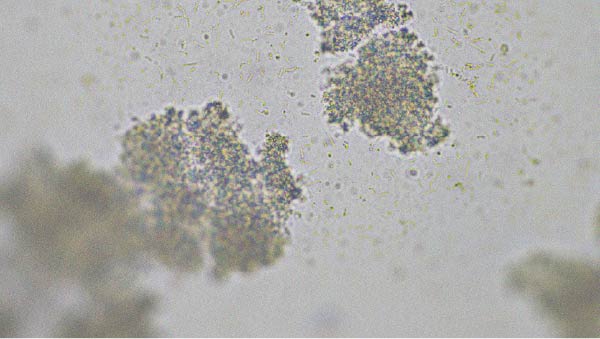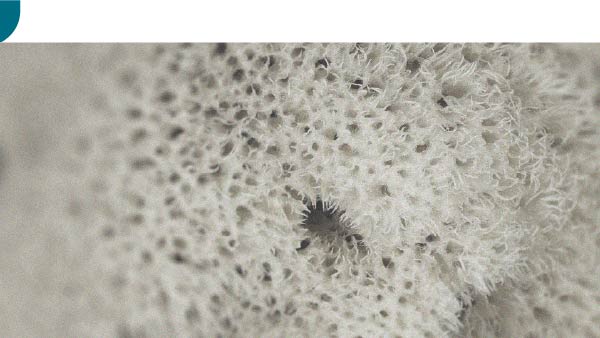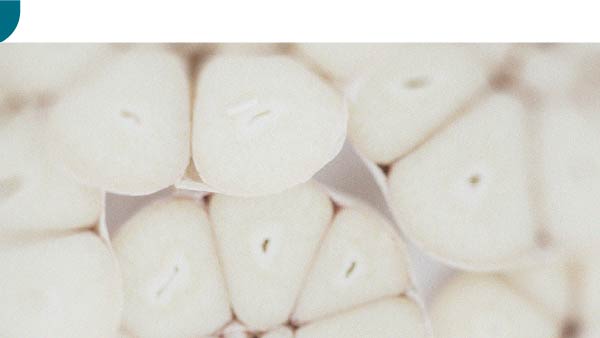Could your stomach ache be caused by the bacteria Helicobacter pylori?
Have you heard of the bacteria Helicobacter pylori? Perhaps not, as awareness of this pathogen is far from widespread, despite it being responsible for many cases of stomach ache. Indeed, around 50% of us may be harbouring this germ which is believed to be the principal cause of gastro-duodenal ulcers.

Where does Helicobacter pylori grow?
For a long time, it was thought that no bacteria could survive the acidity of the stomach. However in 1982, two Australian scientists were surprised to discover that the bacteria Helicobacter pylori (H. pylori) was indeed able to withstand the effects of gastric juices. This bacteria forms part of the Helicobacter genus because of its external, corkscrew-like, helicoidal structure. The term pylori refers to the pylorus where the stomach meets the small intestine.
How does Helicobacter pylori survive in the stomach?
The scientists who discovered Helicobacter pylori in the human stomach were actually awarded the Nobel prize for physiology and medicine in 2005. Following this major advance, further research has expanded our understanding of the mechanism responsible for its development. Its very specific structure means it is able to penetrate the stomach’s mucus and mucosa. Once there, H. pylori produces significant amounts of an ammonia-producing enzyme called urease, which enables it to survive in the gastric mucosa.
What are the consequences of H. pylori infection?
As well as secreting urease, Helicobacter pylori produces toxins which damage the stomach, weakening the gastric mucosa and leaving it vulnerable to attack by gastric juices. They may also increase gastric acid production which encourages the development of chronic inflammation in the stomach, manifesting in frequent stomach pain.
What is the risk of complications from H. pylori infection?
In some cases, the gastritis caused by H. pylori can result in a gastroduodenal ulcer, a deep lesion in the stomach wall (gastric ulcer) or intestinal wall (duodenal ulcer). Helicobacter pylori infection is now considered the leading cause of gastroduodenal ulcers. In rare cases, it can contribute to the development of stomach cancer (gastric adenocarcinoma).
Who is affected by this infection?
It’s estimated that half the world’s population may be infected by the bacteria H. pylori. Though contamination happens more frequently in childhood, Helicobacter pylori infection can remain asymptomatic and undiscovered for many years. A significant number of people are thus living with this bacteria without realising it.
How do you recognise and diagnose infection by H. pylori ?
It can be difficult to diagnoseHelicobacter pylori infection - medical tests are needed to confirm the presence and growth of this bacteria. There are, however, certain warning signs such as persistent, increasingly frequent stomach aches, abdominal pain accompanied by bloating, and nausea with loss of appetite.
How is H. pylori infection treated?
Helicobacter pylori is normally treated with antacid-based triple therapy, aimed at reducing gastric acid production and limiting damage to the gastric mucosa. This tritherapy usually includes a proton pump inhibitor (PPI) and two antibiotics. In some cases, quadri-therapy with a PPI and three antibiotics may be used. Unfortunately, more and more cases of antibiotic resistance are being reported. The bacteria H. pylori is mutating and becoming resistant to antibiotics.
Are natural treatments available?
In view of this growing antibiotic resistance, a number of studies have highlighted the benefits of natural treatments for combatting gastritis and ulcers. Widely-studied, liquorice extractHelicobacter pylori: mastic gum. This natural gum has been used for thousands of years as a remedy for stomach aches and as an antiseptic. Studies show that this extract may inhibit or kill certain bacteria, including H. pylori.
How can you prevent infection by H. pylori?
The above-mentioned liquorice extract and mastic gum can also be used in a preventive capacity. Their activity is particularly useful in helping to protect the gastric mucosa from attack by H. pylori. Improving digestive transit may also be beneficial for prevention given that good digestive transit encourages the elimination of toxins including those produced by Helicobacter pylori. Alongside a balanced diet and healthy lifestyle, certain dietary supplements can help to maintain good digestive transit. One such supplement is psyllium seed husk, which contains a large quantity of soluble fibre, and probiotics, microorganisms recognised for their beneficial effects on the digestive system.
Keywords
8 Hours
Everything is great!
Everything is great!
Jonas
5 Days
The delivery was fast and the product…
The delivery was fast and the product is great
SOMMARIVA Gianni
6 Days
Great service and lots of information
Great service and lots of information
Gabi
9 Days
Service Satisfaction
I’m satisfied with the service; it fulfilled what it set out to do.
Anfhony Abreu
12 Days
Original product and fast delivery
Original product and fast delivery. I haven't started it yet, but will do soon.
Vincenza Catania
15 Days
Good quality
Good quality. Good service.
Leonel Guzman
17 Days
Top!!!!!!!!
Top!!!!!!!!
Michael
19 Days
Excellent!
Products are great and delivered fast!
PARDINI Debora
19 Days
From order to receive the product
From order to receive the product, the process is smooth & fast. It’s good to customers.
WONG Mei Ling
20 Days
Fast delivery
very quick delivery to italy. product is good.
Customer
21 Days
Prompt delivry !!👍
Prompt delivry !!👍
SWEET Christine
22 Days
Good delivery and flawless quality
AS far as delivery and the visual quality are concerned, Supersmart is excellent. I will not comment on the efficacy of the products themselves, since that is only possible over a longer period and in a large customer base compared to people who do not consume a particular product.
Roger De Backer
23 Days
Perfect services
Perfect services, perfect support, great articles about products
Michaela Alali Beitlová
24 Days
Great experience and effective supplements
I’ve purchased many types of supplements from this company over the course of years to treat a few issues, and I’m satisfied with their quality. After using them consistently for a period of time, I can say they met my expectations and I could feel real health benefits that built up over time. Deliveries are always quick. I recommend this company to anyone looking for high-quality supplements.
Giordano
24 Days
Es hat alles gestimmt
Es hat alles gestimmt. Top
marina thieme
of experience
your money back
##montant## purchase




